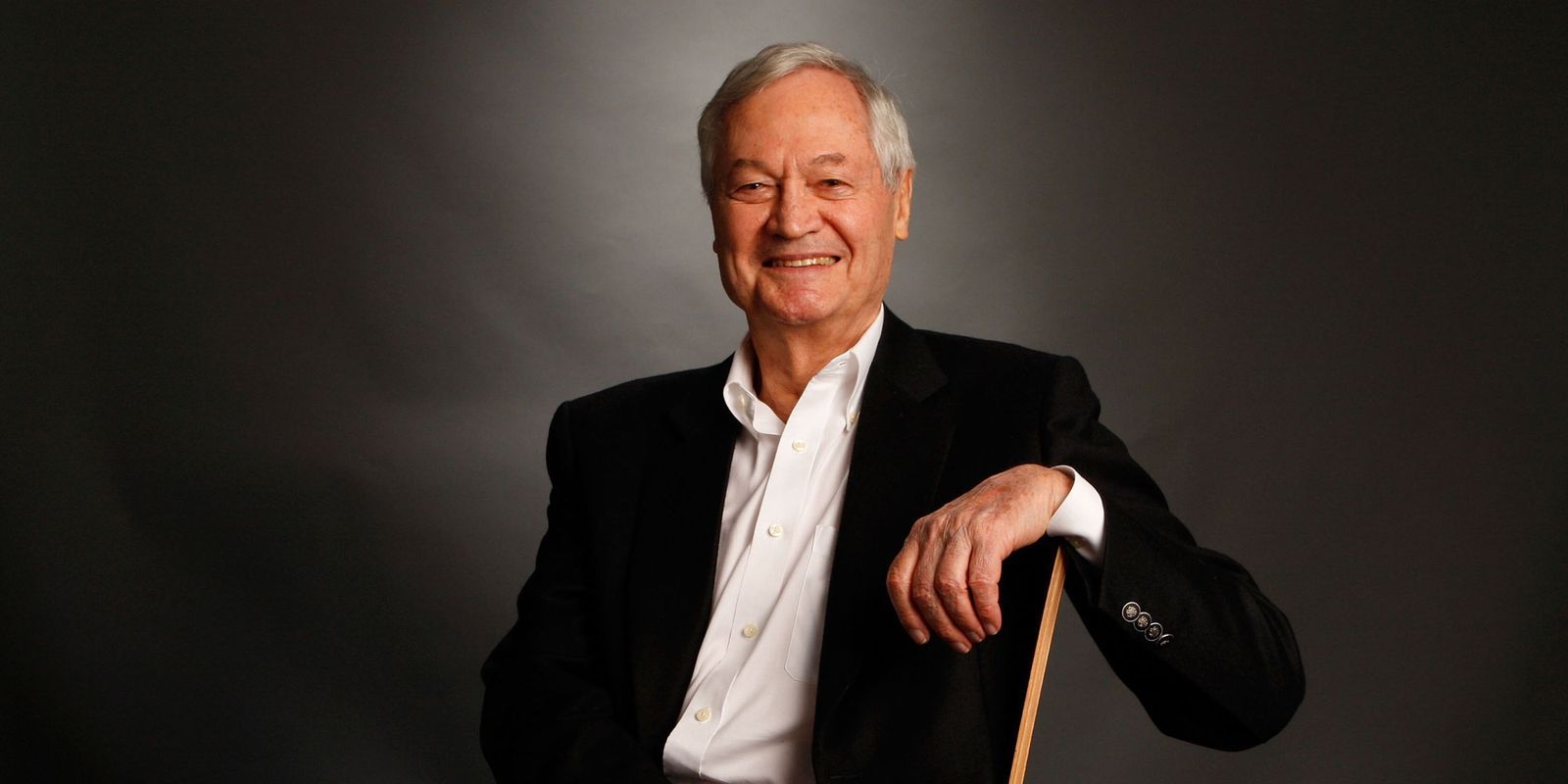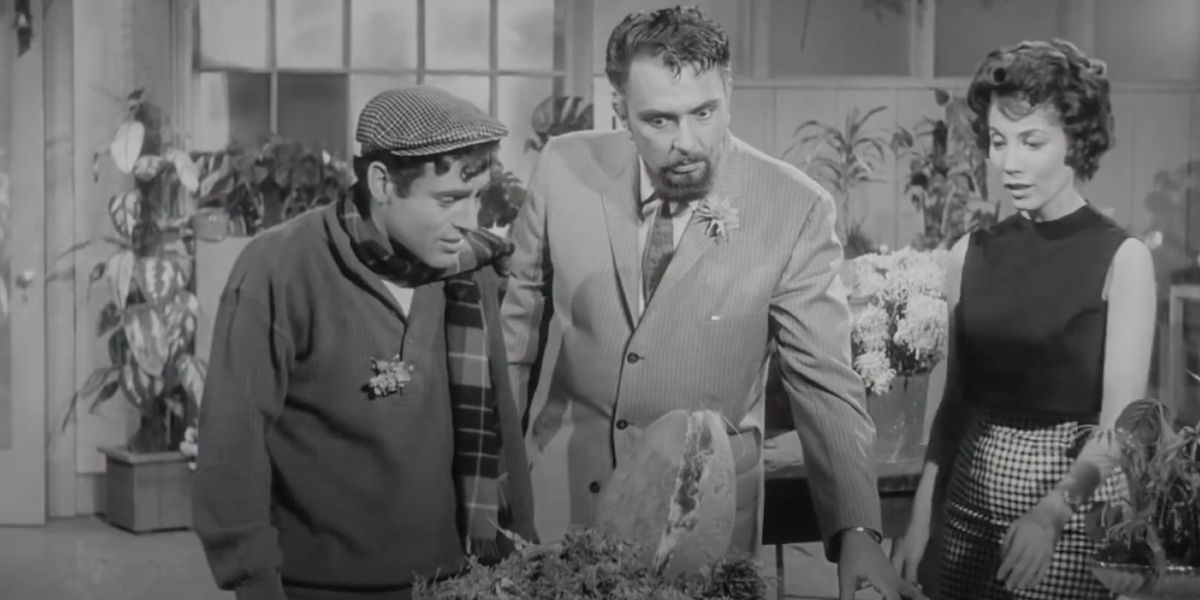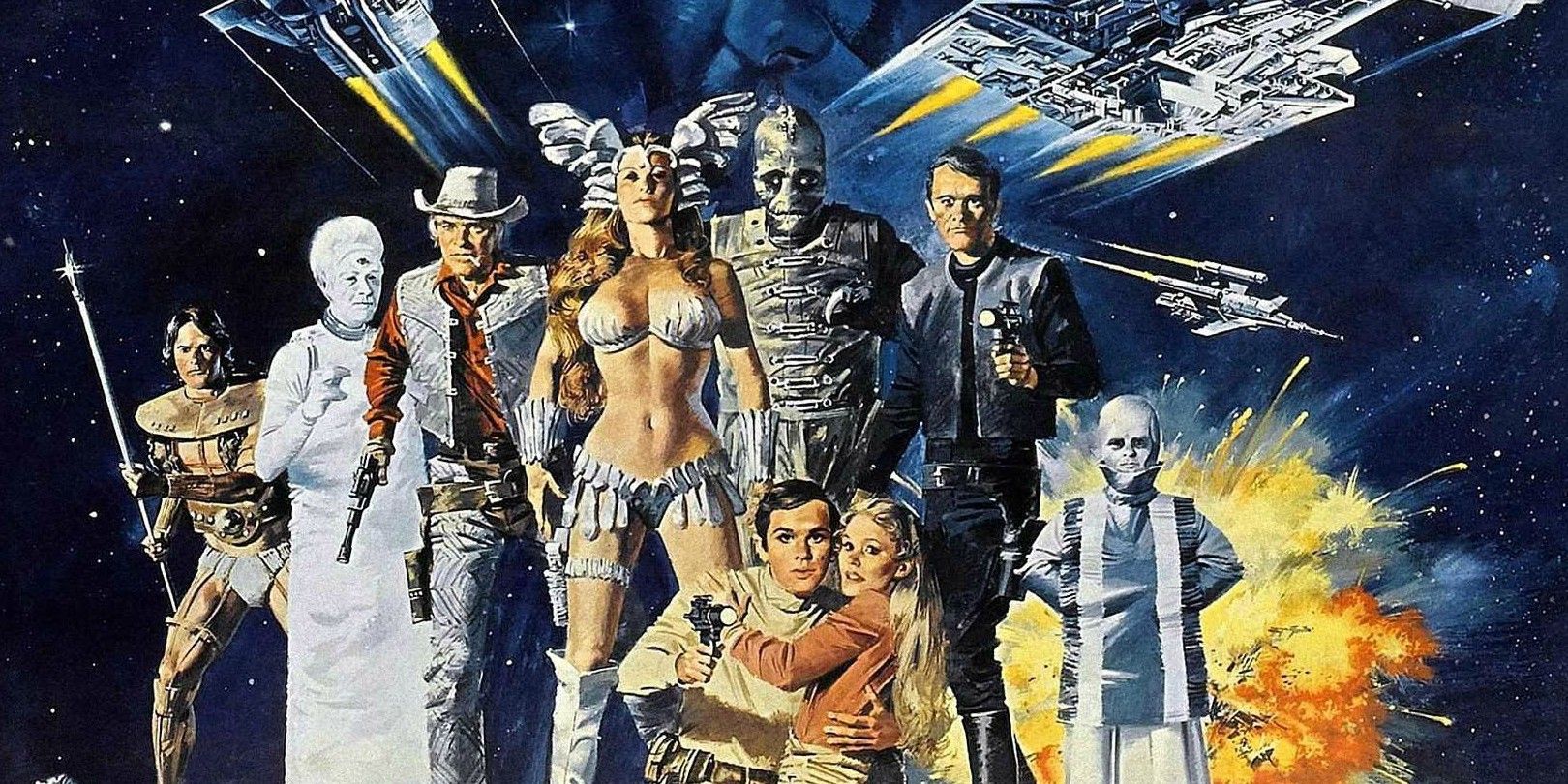One of the most prolific and influential filmmakers in history, Roger Corman has produced well over 300 films over the course of his career, starting in 1954. In addition to producing, Corman has directed dozens of films himself and helped launch the careers of actors, directors, and producers, including Martin Scorsese, James Cameron, and William Shatner. A selection of Corman's most enduring films is coming to Shout! Cult, the streaming service by multimedia production company Shout! Factory, from the sci-fi epic Battle Beyond the Stars to the aquatic horror movie Piranha.
In an exclusive interview with CBR, Corman reflected on his extensive filmmaking career. He shared his experiences working with some of the biggest names in Hollywood and explained how he executive produced the live-action cinematic debut of the Fantastic Four.
CBR: My gateway into your work was the Edgar Allan Poe adaptations, and quite a few of your horror movies and creature features are coming to Shout! Cult. What is the secret sauce in crafting a good horror movie?
Roger Corman: To me, it's to create the feeling of horror throughout the film, not particularly obviously in the horror scenes but also all the way through the dialogue. You're setting up the possibility that something horrible is going to happen. You have to permeate the film with the feeling or this anticipation of horror. You can't just automatically throw in a horror scene, you have to build up to it. To me, the build-up is just as important as the actual horror scene because a horror scene, if you don't really build it up, doesn't work as well.
For as terrifying as they got, there was always a bit of humor in each of those movies, like a wink to the audience to remind them that we're having a good time. What was it about blending humor with horror?
I always liked the idea of putting in a little bit of humor. I got the idea that since this little bit of humor seemed to work very well, why don't I go all-out and make a comedy-horror film? The first was A Bucket of Blood, which was set in a beatnik coffeehouse, and it was a big success. So I thought I'd go again, and I made Little Shop of Horrors about a man-eating plant. That was an even bigger success. It became a Broadway musical, David Geffen produced a huge budget film, and I have a deal with Paramount to remake Little Shop of Horrors. The original Little Shop of Horrors was shot in two days and a night on a budget of about $35,000. The new one will have a budget of $8 million. [laughs] We move on!
You were always able to turn around these films with shorter shooting times and smaller budgets. How was it being able to find that movie magic with that in mind?
As I said with Little Shop of Horrors, it was two days and a night, and the night shooting was just incidental; it was two days. It turns out that if you hire an actor on a weekly salary, it's about the equivalent of hiring them for two days on a daily salary because a daily salary is bigger. I hired the actors for a week, and we rehearsed on set Monday, Tuesday, and Wednesday, so everything was prepared. All my shots were worked out, [and] the actors knew exactly what we were doing, so we were able to shoot with the utmost efficiency.
Also, since everybody knew that this was a comedy-horror film, it permeated, and the crew was laughing, the actors were trying not to destroy their roles, and they were enjoying it. I think one of the things that happens is that the feeling on set permeates, to a certain extent, in the picture itself. What added to the humor is that everyone just knew that we were having a good time.
You've always had an eye for talent, be it Jack Nicholson in Little Shop of Horrors or helping start the careers of Francis Ford Coppola and James Cameron, to name a few. From casting to New World Pictures, what do you look for in talent?
I look for a number of things. I think I've directed over 60 films, and, having been a director myself and seeing the work of other directors, I look first for intelligence. I've never heard of a director who had a long, successful career who wasn't intelligent. The other [thing] was the willingness to work hard. People think of directing as a glamorous, creative job -- which it is, but it is also very hard work. You've got to be able to keep your stamina up because you work long hours in motion pictures because nobody works an eight-hour day because it takes so long to set up in the morning, and you're shooting six and a half hours a day.
I used to shoot a maximum of ten hours, and young directors want to shoot even more. I'd tell them they'd have to stop after ten hours because they're in golden hours for the actors. They're paying them a huge amount of money, and they're not getting a full performance out of them because everybody is so tired. You've got to work hard.
The other, which is the most difficult, is to judge the creativity of the director. Most of the directors who started with me started as an assistant. For instance, Francis Coppola was my assistant, and we were shooting a Formula One Racing picture in Europe called The Young Racers. He was shooting some second unit, and his second unit shots were brilliant, and, based upon that, I gave Francis his first shot at directing. That's the most difficult thing to judge.
In talking about A Bucket of Blood, you were doing movies about beatniks and bikers when Hollywood was still focused on cowboy pictures and musicals. Why did you want to shine a light on these communities when the bigger studios weren't as interested?
AIP wanted me to make another Edgar Allan Poe film, and I said, "I'm starting to repeat myself. I don't want to make any more Poe films." They asked what I wanted to do, and I said I wanted to go out into the streets and away from the studio. I told them the idea of doing a film about the Hell's Angels, and they agreed because I felt, beyond the obvious situation with the Angels, they actually were a sociological phenomenon, and the picture was a huge success.
One of the big movies coming to Shout! Cult is Battle Beyond the Stars. Was that your first time working with James Cameron?
Yes! Actually, he's the only guy who got a raise in the middle of production. We had finished shooting, and we set up our own special effects department, and they were falling behind. I sent Gale Hurd, an ace assistant, down to the studio and said to hang around for a day or two and find out why we're falling behind. She came back with the opinion that the guy that I hired to be the head of the special effects department -- as many people will do, and I've probably done myself -- exaggerated his experience, and he really wasn't that good.
She said there was a guy just making models there that really understands this whole process better than anybody else. I went down to the studio, and it was Jim Cameron. I talked to him for a while and said, "Jim, I've never done this before, but I'm giving you a raise and making you a production head. You are now head of the special effects department," And he pulled it all together!
In addition to doing the horror and science fiction, how was it leaning into social commentary?
I enjoyed it very much because I was aware of the New Wave directors in Paris who were shooting in the streets. I wanted to get out of the studio and totally enjoyed it except for one incident. Afterward, the Hell's Angels found out how much money the picture had made -- as I said, it was a huge success. They announced that they were going to kill me and, at the same time, they were suing me for $1 million. The head of the Angels called me, and I remember the conversation almost exactly. It started with [him going], "Hey man, we're going to snuff you out."
I said, "Look, analyze this: You've already announced that you're going to kill me. If I slip and fall in the bathtub, they're going to go after you. At the same time, you're suing me for $1 million. How do you expect to get $1 million if you kill me? My advice to you is, forget the momentary pleasure of killing me and go for the $1 million." He thought about it for a while and said, "That's what we're going to do. We're going to go for the $1 million."
As someone who's made movies with a DIY sensibility, what do you think of people having their own film camera in their pockets?
I think it's great! It now allows independent filmmakers who don't have the money to shoot in a normal way to shoot an actual film on their camera. Monte Hellman, a good director that I've worked with, shot an entire picture on his cellphone. Part of it took place in Italy, and he couldn't get permission to shoot in this very elaborate, historical church. He realized, with his cellphone, he could just go in there, so he had his actors go in as parishioners, and he sat behind them with his cellphone. No one knew he was filming, and he got the scene.
While Disney is gearing up to produce their own Fantastic Four movie, you actually produced the first-ever Fantastic Four film. Tell me about that experience.
What happened was Bernd Eichinger, a German producer I knew, called me one time in early November and said, "Roger, I'd like to come to talk to you. I have a proposition. I've a script for The Fantastic Four, but it's got a budget of $30 million. I don't have $30 million, and my option runs out December 31. I know you've got your own studio and can shoot inexpensively. Can you make this $30 million for $1 million?" I said, "Bernd, that's a fairly big cut. Let me send the script down to the boys at the studio. They and I'll read it over the weekend, and let's all meet on Monday." We all met on Monday and said, "Obviously, Bernd, we can't shoot exactly what's in the script, but we can come moderately close."
His whole point was that he had to start shooting before December 31 and that set up sequels and so forth. I said, "I want to start shooting on December 30." Bernd said, "It'll be obvious what we're doing. I want to start shooting on December 26," and I said, "Bernd, it's going to be obvious what we're doing anyway."
I think we compromised with December 28 and shot the picture. The picture actually was a pretty good little picture. He now owned it, and I had a little percentage of the profits. I said, "Bernd, what are you going to do?" He said, "I've just made a deal to make a Fantastic Four for the original $30 million, and I'm going to make that. I'm sure it's going to be a big success, and then I'm going to release the $1 million picture. People will be accustomed to the $30 million picture, so I expect to make a fortune off of that."
Fox or somebody found out about it and told him that they would cancel the bigger picture if he intended to do that. Somehow, the picture was shown on the internet, and it was very well-reviewed. Somebody wrote that of all the Fantastic Four films, the one that was the most faithful to the original [comics] was our film.
A selection of Corman's films has been added to the streaming service Shout! Cult, with new additions from the prolific filmmaker expected in August.


.jpeg)

